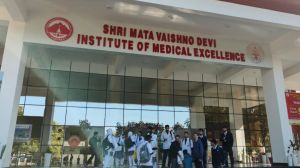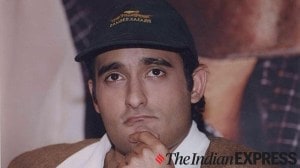The surrender in Lucknow
It is becoming increasingly clear that the Sangh Parivar has a dangerous agenda to take back the country to medieval ages. This conclusion...

It is becoming increasingly clear that the Sangh Parivar has a dangerous agenda to take back the country to medieval ages. This conclusion emerges from the brazen and untenable action of the Uttar Pradesh government headed by Ram Prakash Gupta when it decided to repeal the Uttar Pradesh Hindu Public Religious Institutions Prevention of Dissipation of Properties Temporary Powers Act, 1962. The Act had the laudable object, as given in the preamble, of preventing dissipation and regulating transfer of the properties of religious institutions. It was originally to remain in force for only two years, but it was retained because of its felt necessity through governments presided over by different political parties, including the BJP.
Section 6 of the Act empowers the state government, where it apprehends that property of any institution is likely to be dissipated, to direct the investigating officer to make a survey of such institutions. Section 7 requires a prior approval of the commissioner for transfer of property of the institution. The commissioner has also been given the power to take measures for the protection of the property of or under the domain of the institution and also for recovery of the property lost to the institution.
The Act was to serve a public purpose in preventing misappropriation of the property of religious institutions. I myself, in my judicial capacity, have had occasions to deal with some of the inter se disputes among the pujaris of temples in Delhi 8212; these enjoy tremendous popularity and offerings to them run into lakhs. They all presented a sad spectacle of gross defalcation and misappropriation of funds. But, in the absence of similar legislation in Delhi, there was very little that one could do.
The puerile explanation by the CM that the Act was withdrawn because of possible misuse of official machinery is a reflection on himself, since officials are under his direct control. If such excuses are to be accepted, then the whole machinery of sales tax and excise would have to be abolished.
This action is still more indefensible considering that the Supreme Court has held that the protection under Clause b of Article 26 to manage religious affairs does not extend to management of secular affairs. The constitutional validity of a tougher legislation like Bihar Hindu Trust, 1951, was upheld by the court negativing the arguments that it violated the fundamental rights. The court rejected the plea that provisions, empowering the state officials to see that the funds of the institution are spent in accordance with the object of the trust, violate in any way the fundamental rights of a religious denomination to manage its own affairs.
The CM8217;s action is still more inexcusable considering that it has been taken under the pressure of the so-called sadhus and purported religious organisations. More dangerous is the trend which he has set by permitting Hindu religious bodies to influence secular activities of the state. The dangerous implications of the new precedent being set up by Gupta are illustrated by the havoc being wrought in Sri Lanka by the active intrusion of Buddhist priests in politics and secular decision-making. We must prevent the incursion of priesthood in our body politic if we wish to preserve our proud legacy of a multi-religious, multi-cultural society.
This is not an isolated, inane act of an individual politician. It fits in with the overall strategy of the RSS of which Gupta is a former member in communalising the atmosphere and encouraging fundamentalism in the body politic. This is borne out by the proposal of the UGC to introduce at the university level courses in astrology and the Vedas. I am not in any manner belittling the contribution of the Vedas to human knowledge and spiritual journey. But there are any number of institutions like the gurukals opened by the Arya Samaj which specialise in the teaching of the Vedas. Let the NRIs, for whose alleged benefit these courses are supposed to be introduced, make funds available to those institutions. But, for God8217;s sake, do not vitiate our country8217;s secular base. UGC chairman Hari Om takes the cake for seriously suggesting that introduction of these courses in universities will increase the prospect of employment abroad amongst NRIs and the spread of our culture. I did not know that we needed graduatesin Vedic rituals to spread the message of our ancient civilisation.
The writer is a former Chief Justice of the Delhi High Court
>
- 01
- 02
- 03
- 04
- 05































